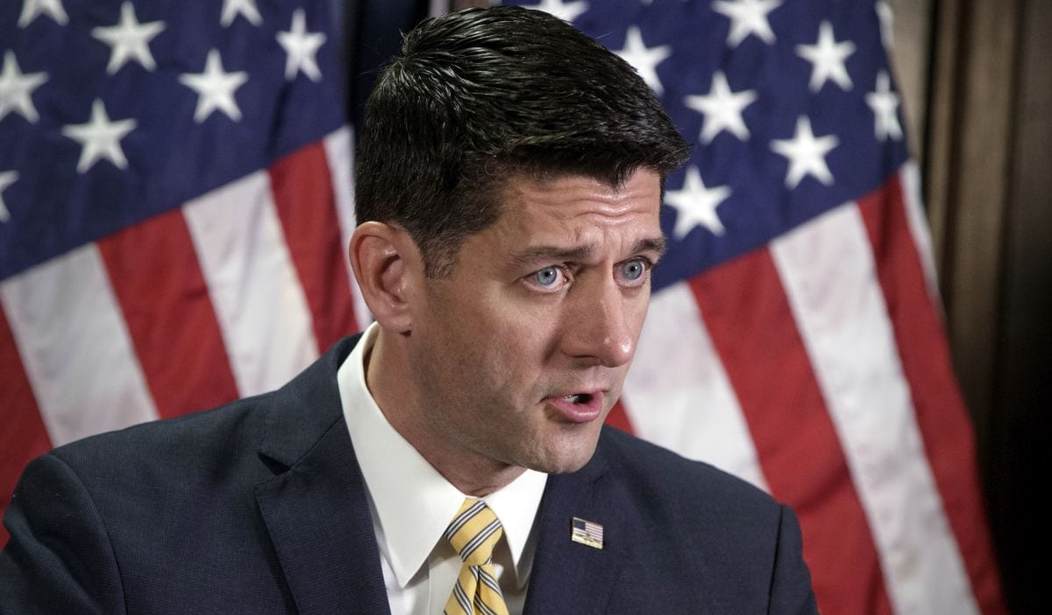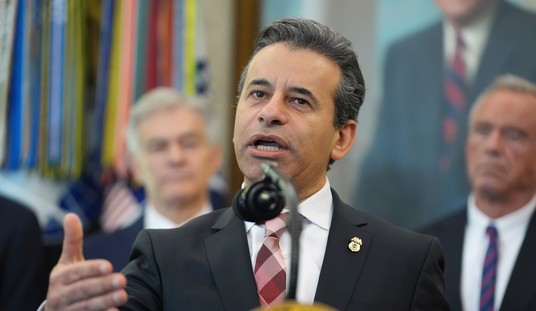When Barack Obama ran trillion-dollar deficits for four years in a row, there was a hue and cry from many conservatives about the dangers inherent in having a runaway federal budget.
But how come, with the prospect of several years of trillion-dollar budget deficits staring Congress in the face, there is little mention of it on the right?
Republicans have controlled the Congress since 2010 and have failed to live up to their fundamental creed of supporting balanced budgets.
Truth be told, they haven’t even come close.
Donald Trump is now embarked on an historic spending spree and the GOP Congress is going along for the ride.
The U.S. Treasury Department reported last Friday that the federal budget deficit for the just-completed fiscal year had risen by $80 billion over fiscal 2016 to the ominous-sounding $666 billion, a number many people think is an omen for the coming of the devil or anti-Christ.
In this case they may be right: The spending and taxing policies about to be put in place by the Trump administration and the Republican-controlled Congress will balloon the federal deficit to $1 trillion or more every year going forward.
And unlike the four consecutive $1 trillion deficits recorded during the first years of the Obama administration, these trillion dollar annual deficits will be the result of enacted changes in federal spending and taxing rather than on a temporary economic downturn. Some of these changes will be permanent. Others will need to be reapproved annually but are unlikely to be rejected in the future.
As a result, the Trump/GOP-supported $1 trillion budget deficits are the new normal.
The tax cut will not be “revenue neutral” in that there won’t be a dollar cut from the budget for every dollar lost in tax revenue. And in an age when 3% annual GDP growth has become the new normal, there is absolutely no way we can “grow” our way out of such a deficit.
While the White House and its congressional supporters insist the tax cut the House and Senate will consider in the next month or so will eventually pay for itself with much higher economic growth rates, the congressional budget resolution passed by the Senate late last Thursday (and highly likely to be accepted by the House) assumes that the deficit will increase by about $150 billion a year over the next 10 years. Nonpartisan analyses show that the deficit will increase by an average of between $220 billion and $240 billion between 2018 and 2027 and even more thereafter. An average of the three estimates results in about a $200 billion increase in the budget deficit for each of the next five years.
That will make the annual deficit around $940 billion.
At least Paul Krugman will be happy.
As for the rest of us, not so much. Someday, someone is going to have to pay the piper for running up this massive debt. It apparently doesn’t matter which party is in power because both Democrats and Republicans (yes, even so-called “true” conservatives) would prefer kicking the deficit can down the road rather than face the stark choices of what to cut and by how much.
And we keep electing these spendthrifts again and again and again…
Change will only happen when we are confronted with disaster — an economic dislocation so profound that “normal” politics becomes impossible. At that point, what kind of society will we be?
I don’t think it would be any place you or I would prefer living in.










Join the conversation as a VIP Member